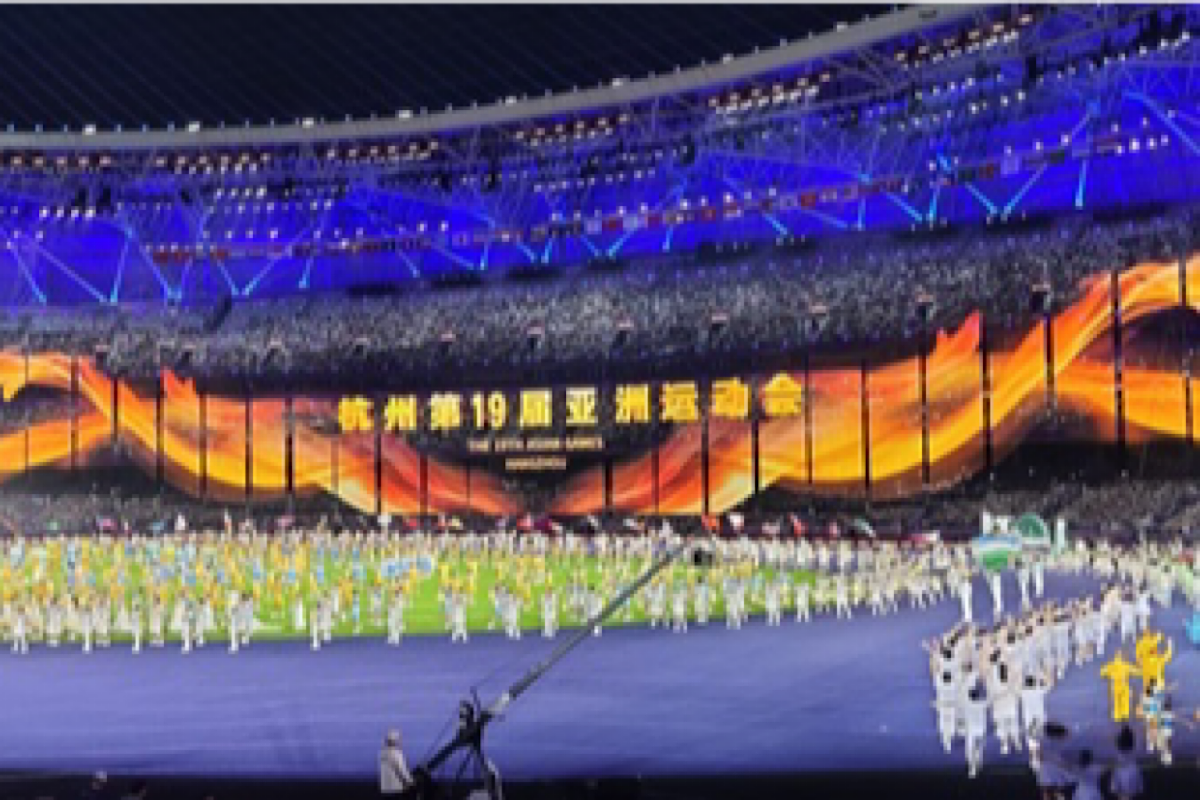The 19th Asian Games culminated on Sunday with a glittering closing ceremony in Hangzhou, celebrating the incredible achievements of the athletes and showcasing China’s rich cultural heritage.
Packed with 80,000 spectators, the ‘Big Lotus’ Stadium was transformed into a mesmerizing display of lights, sounds, and lasers during the closing ceremony, spanning for little over an hour.
Advertisement
Olympic Council of Asia (OCA) acting chief Randhir Singh declared the 19th edition of the Games closed in the presence of Chinese premier Li Qiang and other dignitaries.
“I declare the 19th Hangzhou Asian Games closed and as per the tradition call upon the youth of Asia to assemble in three years time in Aichi-Nagoya (Japan) to celebrate the 20th Asian Games there in accordance with the ideals of the Olympic Council of Asia,” he said.
“May the youth of Asia ever celebrate the Asian Games in the spirit of brotherhood and for the good of humanity. Over the past 16 days, we have shared many unforgettable moments in this magnificent city. And it is time to say ‘Shay Shay, Hangzhou’ for a wonderful and memorable Asian Games,” the veteran administrator added.
“Asia and the world loves Hangzhou! You have been the perfect host – and the OCA will never forget this. I would like to thank the Chinese Government, the Chinese Olympic Committee, the people of Hangzhou and HAGOC for what you have done and ensured that the Hangzhou Asian Games were an unprecedented success,” Singh further said.
Singh later handed over the torch to Hideaki Omura, the Governor of Aichi Prefecture, the host of the 20th edition of the Asian Games in 2026.
The flag bearers of all the countries came out first before the other athletes and officials joined. For India, men’s hockey team goalkeeper PR Sreejesh was the flag bearer.
There were around 100 Indian athletes and officials in the parade, as many of them had already left for home after the end of their respective events.
According to the organizers, more than 12,000 athletes from 45 nations competed in 40 sports at the Games, which witnessed hosts China dominating the medals table once again, the 201 gold (along with 111 silver and 71 bronze) beating the 199 they collected at 2010 Guangzhou Games.
Japan (52 gold, 67 silver, 69 bronze) and South Korea (42 gold, 59 silver, 89 bronze) were second and third with India finishing at fourth with a record haul of 107 medals (28 gold, 38 silver, 41 bronze).
A total of 13 world records, 26 Asian records and 97 Games records were broken during the Games.
The giant virtual torchbearer, who lit up the main Games flame together with Olympic champion and 19th Asian Games gold medallist swimmer Wang Shun at the opening ceremony, returned to witness the flame being extinguished. The digital giant then bid his own farewell with an emotional gesture before disappearing from the show.
The closing ceremony on October 8 also coincides with Cold Dew, one of China’s 24 solar terms added to UNESCO’s World Intangible Cultural Heritage List, which represents a good season for lotus and osmanthus. The closing ceremony will carry forward the Chinese farewell tradition and showcase the harmony of lotus and osmanthus.
The Lotus and the Osmanthus in Harmony depicted the thousand-year tradition between parting friends and adapted this tradition in the realm of sports and competition.









